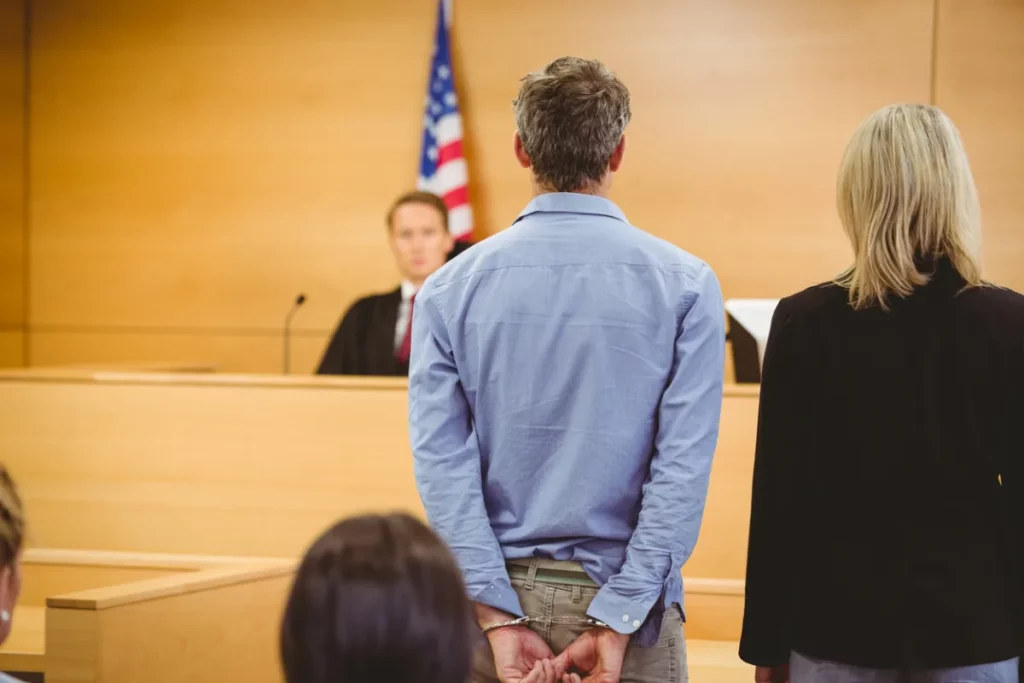Navigating the complexities of Georgia’s criminal justice system is crucial for those on misdemeanor probation. Misdemeanor probation violations can result in significant legal consequences, potentially leading to harsher penalties than the original sentence. This article will explore the nature of misdemeanor probation violations in Georgia, the consequences of such violations, and offer strategies to avoid these pitfalls.
What is a Misdemeanor Probation Violation?
A misdemeanor probation violation occurs when an individual on probation fails to adhere to the conditions set forth by the court. Probation is often granted as an alternative to jail time, allowing the individual to serve their sentence within the community under supervision. However, this leniency comes with strict conditions that must be followed diligently.
Misdemeanor Probation in Georgia
Misdemeanor Probation in Georgia is a court-ordered period of supervision, often used as an alternative to incarceration for individuals convicted of misdemeanor offenses. During the probation period, the individual must comply with specific conditions, which may include regularly checking in with a probation officer, paying fines, attending court-ordered counseling, and avoiding any further legal trouble. Failing to comply with these conditions constitutes a misdemeanor probation violation and can lead to severe consequences.
In Georgia, the probation period for misdemeanors can vary depending on the nature of the offense and the discretion of the court. The court imposes these conditions to monitor the individual’s behavior and ensure they do not re-offend. Probation allows the individual to maintain employment, support their family, and contribute to society while serving their sentence. However, the privilege of probation comes with the responsibility to adhere strictly to the terms set forth by the court.
Types of Misdemeanor Probation Violations
Probation violations in Georgia are categorized into two main types: technical violations and substantive violations. Understanding these categories is essential, as they carry different consequences.
Technical Violations
A technical violation occurs when the individual on probation fails to comply with the administrative conditions of their probation. Examples of technical violations include:
- Missing a scheduled meeting with a probation officer.
- Failing to pay court-ordered fines or restitution.
- Not completing mandated community service hours.
- Failing to attend required counseling or rehabilitation programs.
Technical violations do not involve committing a new criminal offense but rather reflect a failure to follow the procedural aspects of probation. While they may seem minor, technical violations can still result in serious consequences, such as extended probation or even jail time.
Substantive Violations
A substantive violation is more severe and occurs when the individual on probation commits a new criminal offense. This type of violation indicates a breach of the law during the probation period and can lead to much harsher penalties, including revoking the balance of the original sentence and a possible jail sentence. The severity of the punishment often depends on the nature of the new offense and the individual’s prior criminal history.
Role of the Probation Officer
The probation officer plays a crucial role in monitoring individuals on probation. Their duties include:
- Ensuring that the individual complies with all the probation conditions.
- Conducting regular check-ins with the individual to assess progress and address any issues.
- Reporting any probation violations to the court.
If a violation occurs, the probation officer may recommend further action, which could include issuing a warning, modifying the probation terms, or initiating a probation violation hearing. It is vital for individuals on probation to maintain open and honest communication with their probation officer and to comply with all requirements to avoid potential violations.
Consequences of Violating Misdemeanor Probation

Violating probation in Georgia can lead to a range of consequences, some of which may significantly alter the individual’s legal standing and personal life. The severity of these consequences often depends on the nature of the violation, the individual’s prior criminal history, and whether it is a first-time or repeated offense.
Penalties for Misdemeanor Probation Violations
When an individual is found to have violated their probation, the court has several options for imposing penalties. These can range from mild to severe, depending on the circumstances:
- Extended Probation: One of the most common consequences of a probation violation is an extension of the probationary period. This means that the individual will be under supervision for a longer time, with the same or additional conditions imposed by the court.
- Increased Supervision: The court may order increased supervision, requiring the individual to report more frequently to their probation officer or adhere to stricter monitoring conditions. This could include house arrest or electronic monitoring.
- Modification of Probation Terms: If the court finds that the current probation terms are not sufficient, it may modify them to include additional requirements. This could involve mandatory counseling, substance abuse treatment, or community service.
- Jail Time: For more serious violations, or if the individual has a history of violating probation, the court may impose jail time. This could be a short-term incarceration to emphasize the seriousness of the violation or a more extended period, depending on the violation’s nature.
- Probation Revocation: In the most severe cases, the court may revoke probation entirely, which would result in the individual serving the remainder of their sentence in jail. Probation revocation is typically reserved for substantive violations, such as committing a new criminal offense while on probation.
- Fines and Restitution: The court may impose additional fines or order the individual to pay restitution as a condition of continued probation. This is often seen in cases where the violation involves failure to pay previously ordered fines or restitution.
Probation violations carry serious consequences, and it is crucial for individuals on probation to fully understand the terms and conditions imposed by the court to avoid these penalties. For those facing a probation violation charge, seeking immediate legal assistance is essential to mitigate the potential consequences.
Will Georgia Extradite Misdemeanor Probation Violation?
One question that often arises is whether Georgia will extradite an individual for a misdemeanor probation violation. Extradition is the process by which one state can request the return of an individual who has fled to another state to avoid legal consequences.
In Georgia, the decision to extradite someone for a misdemeanor probation violation depends on several factors, including the nature of the original offense, the severity of the violation, and the resources available to pursue extradition. Generally, extradition is more common in cases involving serious felonies or substantial probation violations. However, it is still possible for Georgia to extradite someone for a misdemeanor probation violation if the violation is considered severe or if the individual has a history of repeated violations.
For example, if an individual is on probation for a misdemeanor offense such as reckless driving or simple battery and fails to comply with their probation terms, Georgia could seek extradition if the person leaves the state. The likelihood of extradition increases if the probation violation involves a substantive violation or a new criminal offense.
If you find yourself in this situation, it’s important to consult with a criminal defense lawyer who can provide guidance on your legal options and help navigate the complexities of extradition laws.
Tips to Preventing Misdemeanor Probation Violations in Georgia
Preventing probation violations is essential for anyone on probation, as even minor infractions can lead to severe consequences. Here are some tips to help avoid misdemeanor probation violations:
- Understand Your Probation Terms: One of the most effective ways to avoid violations is to have a clear understanding of the terms and conditions of your probation. Review your probation order carefully and ask your probation officer to clarify any aspects that are unclear.
- Maintain Regular Communication with Your Probation Officer: Keeping in regular contact with your probation officer is crucial. Always inform them of any changes in your circumstances, such as a new job, a change in address, or any other significant life events. Open communication can help address potential issues before they become violations.
- Meet All Deadlines: Probation often comes with deadlines, such as paying fines, completing community service, or attending court-ordered counseling. Missing these deadlines can be considered a technical violation, so it’s essential to keep track of all your obligations and ensure they are completed on time.
- Avoid Criminal Activity: While this may seem obvious, it’s important to emphasize that committing any criminal offense while on probation will almost certainly lead to a substantive violation and severe consequences, including the possibility of jail time.
- Seek Help for Compliance: If you are struggling to comply with the terms of your probation due to financial hardship, substance abuse issues, or other challenges, seek help immediately. Your probation officer may be able to offer resources or modify your probation terms to accommodate your situation.
- Keep Records of Compliance: Document all efforts to comply with your probation, including receipts for fines paid, proof of community service, and attendance records for required programs. Having this documentation can be invaluable if you are accused of a probation violation.
Following these tips can help minimize the risk of violating probation and ensure that you successfully complete your probation period without further legal complications.
For more information on preventing probation violations, you can explore resources provided by the Georgia Department of Corrections.
Seeking Professional Help
If you are facing a misdemeanor probation violation in Georgia, seeking professional legal help is crucial. The consequences of probation violations can be severe, including extended probation and jail time. A skilled criminal defense lawyer can help navigate the complex legal process, advocate on your behalf, and work to mitigate the potential penalties.
Why You Need an Experienced Criminal Defense Lawyer
Hiring an experienced lawyer who understands the nuances of probation violations in Georgia is essential. A lawyer can help in several ways:
- Legal Representation at Hearings: If you are facing a probation violation hearing, your lawyer will represent you, present evidence, and argue your case. This is particularly important in cases where the violation is disputed or if you face severe consequences like revocation of probation.
- Negotiation: A lawyer can negotiate with the prosecution or probation officer to potentially reduce the severity of the penalties or avoid jail time. They can also work to modify the terms of your probation if needed.
- Defense Strategy: Depending on the nature of the violation, your lawyer can develop a strong defense. For example, if the violation is related to a technical violation rather than a new criminal offense, the defense may focus on demonstrating compliance or addressing any misunderstandings.
- Understanding Your Rights: Georgia’s legal system can be complex, and understanding your rights when facing a probation violation is crucial. Your lawyer will ensure that your rights are protected throughout the legal process.
If you are dealing with a probation violation related to a misdemeanor, it’s advisable to seek help promptly. You can find more information on the importance of hiring a probation violation lawyer here or contact us for a consultation.
Conclusion
Misdemeanor probation violations in Georgia can lead to serious consequences, including jail time and extended probation. Understanding the terms of your probation and adhering to them strictly is crucial to avoid these penalties. If you find yourself facing a probation violation, it’s imperative to seek help from a qualified criminal defense lawyer who can guide you through the legal process and work to protect your rights.
By following the guidelines provided in this article and maintaining open communication with your probation officer, you can successfully navigate your probation period and avoid violations. For those in need of legal assistance, consider scheduling a free consultation with an experienced legal team to discuss your case and explore your options.



